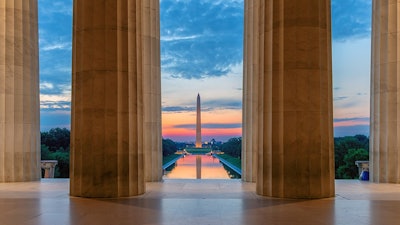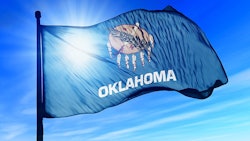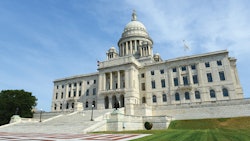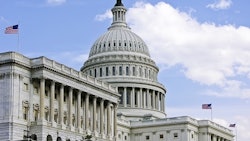
Adult-use cannabis and medical cannabis are now one and the same in Washington, D.C.
District Mayor Muriel Bowser signed into law July 6 an emergency bill allowing all adults 21 years and older to self-prescribe medical cannabis and obtain a medical card, with or without a doctor’s recommendation.
Taking effect immediately, the Medical Marijuana Self-Certification Emergency Act allows the expanded “patient” base to access one of the district’s seven medical dispensaries to legally purchase cannabis in a workaround of a law that has prevented elected district officials from regulating and taxing adult-use cannabis sales in their jurisdiction for the past seven years.
“We have made it a priority over the years to build a more patient-centric medical marijuana program and this legislation builds on those efforts,” Bowser said in a statement following her signing on Wednesday.
“We know that by bringing more medical marijuana patients into the legal marketplace in a timely manner and doing more to level the playing field for licensed medical marijuana providers, we can protect residents, support local businesses, and provide clarity to the community,” the mayor said. “I applaud the council for moving forward this innovative solution to a complex issue, and I look forward to working with the council and [Alcoholic Beverage Regulation Administration] ABRA on permanent, more comprehensive medical marijuana legislation in the future.”
The city’s medical cannabis retailers have experienced “substantial erosion of their business to the illegal market,” Council Chairman Phil Mendelson said in April, when a previous attempt to allow adults 21 and older to access medical cannabis without a doctor’s prescription failed.
Before Bowser’s signing of the emergency bill this week, district residents 21 and older could legally possess, consume, home cultivate and gift cannabis—reform that was enacted following voters passing Initiative 71 in the November 2014 election.
In 2015, however, Maryland U.S. Rep. Andy Harris sponsored legislation that stripped the district’s power to regulate an adult-use cannabis retail industry within its roughly 68-square-mile borders. Commonly referred to as the Harris Rider, the provision blocked the district’s ability to tax and regulate commercial adult-use sales.
In turn, “gifting” operations took off: With differing interpretations of the term “gift,” dozens of businesses in the district have since began charging for merchandise or memberships in exchange for “free” cannabis, which is not regulated or taxed.
While eliminating the Harris Rider had been proposed in Congress’s $1.5-trillion omnibus spending package in March, U.S. lawmakers never took action to reverse the 2015 law.
Having the authority to regulate medical cannabis in the district, however, councilmembers unanimously voted June 28 to pass the emergency bill that Bowser signed Wednesday.
The new law expedites the process of obtaining a medical cannabis card to one day if patients (or anyone 21 and older) choose to visit the ABRA office to register.
ABRA will waive registration fees through Aug. 18.


























